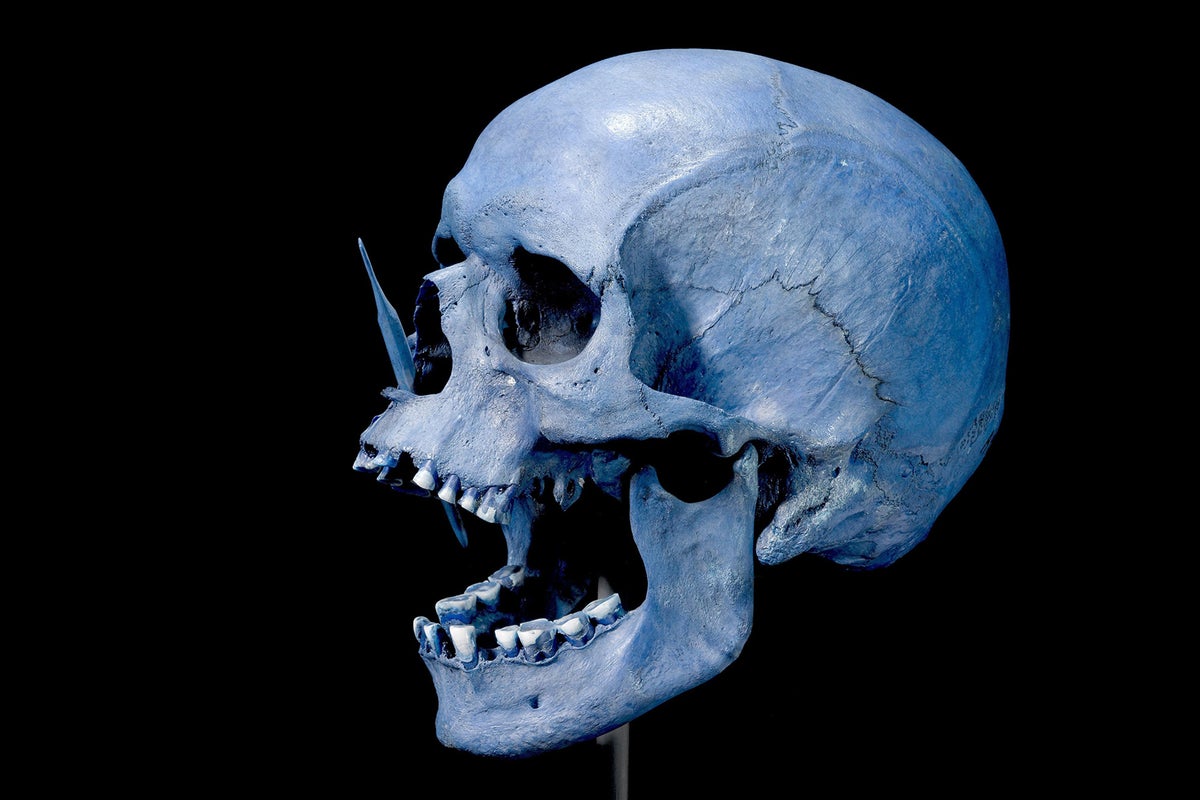
A “significant” breakthrough has revealed the origins of multiple sclerosis and Alzheimer’s in modern Europeans, which could aid new research into the prevention of the disease.
A study looking at 5,000-year-old human DNA has suggested Northern Europeans have the highest rates of MS and Alzheimer’s due to sheep and cattle herders migrating from the east thousands of years ago.
Experts have said the breakthrough, which provides an understanding of the origins of the disease, could aid new research into preventing the condition, which affects more than 130,000 people in the UK.
Multiple sclerosis is a neurodegenerative disease in which the body’s immune system attacks the insulation surrounding the nerve fibres of the brain and spinal cord. It is a degenerative disease for which there is no cure.
By analysing the DNA researchers found MS originated from a region which now spans parts of Ukraine, South-West Russia and West Kazakhstan.
They found the genes associated with higher risks of MS came from livestock herders called the Yamnaya people who migrated over the Pontic Steppe into North-Western Europe.
According to the study, the Yamnaya people most likely developed traits which protected them from catching infections from sheep and cattle but as a result, also increased the risk of developing MS.
The study provides explains why twice as many people in northern Europe have MS compared to those in the south.
Speaking with The Independent, Dr Ruth Dobson, professor of clinician neurology for the Centre for Preventive Neurology, said the research was “really significant.”
She said: “The research is really unique in how it has approached the question as to why certain genes might influence MS and why there might be geographic disparities in getting MS.
“This for the first time looks at how what happened with our ancestors influences the diseases that we have today. It shines a clear light on how things a millennia ago might influence diseases we have today and that in turn provides thought around how we treat or manage diseases.
“If we can understand why people get [diseases] we open the doors to understanding how we prevent them.”
Caitlin Astbury, Research Communications Manager at the MS Society, said: “This is a new and novel way of understanding the genetics of MS. We don’t know for sure why people develop the condition but we know you can’t directly inherit MS. It’s likely down to a combination of genetics, and environmental and lifestyle factors. We know that MS is more common further away from the equator, and this research could begin to explain why we see differences between geographical populations.
“More than 130,000 people live with MS in the UK, and these kinds of studies help us to understand more about who develops MS and why. Ultimately, research like this could lead to new ways to treat or even prevent MS.”
The researchers used a bank of data on ancient DNA created by the Lundbeck Foundation.
By analysing the bones and teeth of almost 5,000 ancient humans, held in museum collections across Europe and Western Asia, the researchers generated DNA profiles ranging across the Mesolithic and Neolithic through the Bronze Age, Iron Age and Viking period into the Middle Ages.
They compared the ancient DNA data to modern DNA from 400,000 people living in Britain, held in the UK Biobank.
Dr William Barrie, from the University of Cambridge’s Department of Zoology and co-author of the paper, said:“These results astounded us all. They provide a huge leap forward in our understanding of the evolution of MS and other autoimmune diseases. Showing how the lifestyles of our ancestors impacted modern disease risk just highlights how much we are the recipients of ancient immune systems in a modern world,” said
Professor Lars Fugger, for the University of Oxford, said it will enable researchers to understand and look at treatments for the direct cause of MS, which appears to be the result of a genetic adaption to environmental conditions.
The team now plans to investigate other neurological conditions including Parkinson’s and Alzheimer’s disease and psychiatric disorders including ADHD and schizophrenia.







